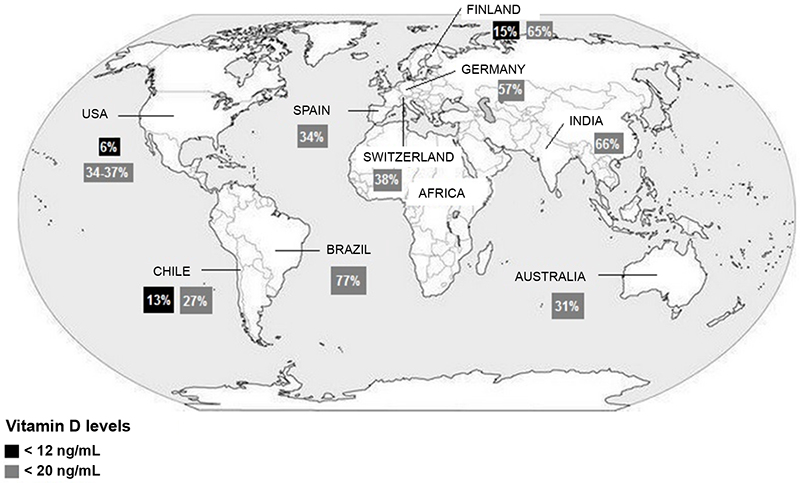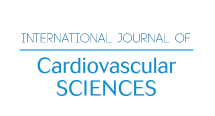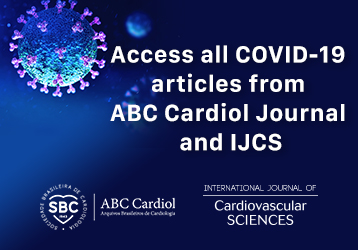Volume 31, Nº 4, July and August 2018
DOI: http://www.dx.doi.org/10.5935/2359-4802.20180025
REVIEW ARTICLE
Vitamin D Deficiency and Cardiovascular Diseases
Antonio José Lagoeiro Jorge
Jamerson Reis Cordeiro
Maria Luiza Garcia Rosa
Diego Braga Campos Bianchi

Figure 1 - Global prevalence of vitamin D deficiency in adults. Adapted from: Palacios C, Gonzalez L. Is vitamin D deficiency a major global public health problem? J Steroid Biochem Mol Biol. 2014 October; 144PA: 138–145. doi:10.1016/j.jsbmb.2013.11.003.
Abstract
Vitamin D is considered a steroid hormone with a broad spectrum of action in the human body. Its action arises from the binding of its active metabolite (1α,25- dihydroxyvitamin D) to its receptor (VDR), which is presente throughout the body, including vascular smooth muscle cells and cardiomyocytes. Initially, vitamin D deficiency was related only to changes in the musculoskeletal system, but in recent years, researchers have demonstrated its relationship with several pathologies related to other systems, such as cardiovascular diseases. The objective of this study is to review vitamin D’s pathophysiology, describe its relationship with cardiovascular diseases based on the most recent publications, and highlight the results of vitamin supplementation in the prevention of such pathologies.
Keywords: Vitamin D Deficiency/physiopathology; Cardiovascular Diseases; Solar Radiation; Calcium; Phosphorus.











